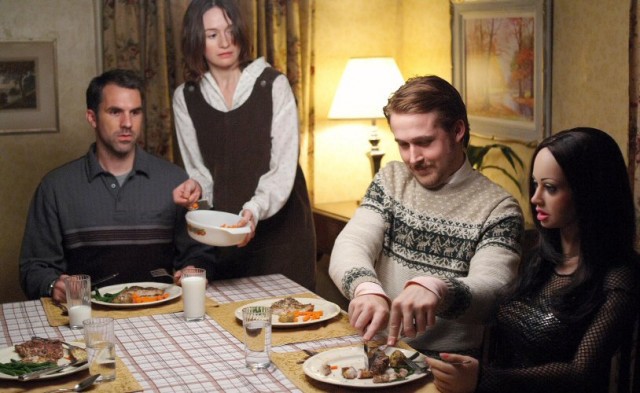Madison Is A Great Small City, Unless You’re Black
by Kashana Cauley

I am at the age where my old friends drop into NYC to visit me every summer and ask me how long I plan to live here. They are Midwesterners who wonder if I’ll move back to Wisconsin now that I’ve been here for eleven years and have a son. They ask how I could “take advantage of it all.” They deploy the argument about the crushing cost of living, no matter how much I insist that my husband and I are doing okay on that front for now. My hometown of Madison, Wisconsin, sometimes hovers in my mind during these talks, because it’s much cheaper and has public schools that will admit my son without requiring an application, an interview, or an IQ test. Yet Madison has never felt like a place I could return to — because I’m black.
I realize this sentiment contradicts everything that everyone on earth has ever heard about super-liberal Madison. It also doesn’t make sense at first because cops don’t kill unarmed blacks in Madison, and are unafraid to do so here, as in the cases of Eric Garner, Amadou Diallo, and so many others. But during my eleven years in New York I have been spared so much of the day-to-day indignities growing up black in Madison showered upon me. In New York, I am allowed to relax to a degree I never dreamed possible in Madison. I can be just another black face on Flatbush Avenue or in Soho or Harlem. I am not regularly asked to represent an entire race of people.
Madison is a white town where my blackness is still constantly pointed out to me as if I am somehow unaware of its existence. Black people nod to me on the street as if we belong to a secret club. The owner of my favorite ice cream shop felt no shame in saying “I just think of you as the interracial couple” to my husband and me when we asked her if she, after seven or eight years of visits, wanted to know our names. We left without giving our names and never went back.
In 2000, my alma mater, the University of Wisconsin, distributed an admissions brochure where they photoshopped a black guy into a football game photo. I was often “complimented” for “not seeming that black” and trusted to give the deciding opinion in debates as to whether or not something or someone was racist. Madison is a white town in a white county with a black incarcerated population of 50% and a black population of 6%. As of 2013 Wisconsin leads the country in incarcerating black men. As of 2013, Wisconsin is the worst state in the nation for black children, as measured by the educational and socioeconomic disparities between black children and their white peers. That same study found that Wisconsin is the 10th best state in the country for white children.
Madison doesn’t advertise itself as a city where all the seventh-grade white kids’ heads swivel to the black kid a few times per lesson during every Social Studies class in February, as if she is more qualified to teach the students about Black History Month than the teacher is. It doesn’t mention in its promotional materials that it is culturally okay for those seventh-grade white kids to grow up to become adults that openly stare at that black woman on the street as if she has broken a taboo by existing, because somehow, in the intervening years, she hasn’t multiplied enough to stop them. Madison won’t tell you how many hundreds of people touched my hair in the twenty-three years I lived there without asking first and called it “neat.”
Last year my friends who still live in Madison posted a few essays on social media written by black Madisonians whose experiences growing up there were as depressing as mine. After they told stories of trying to keep people’s hands out of their hair and being ostracized from the church community, the business community and the schools, they called for change. I cried after reading these essays because I wanted to believe that black-white relations had magically improved a ton since I left. Yet I was happy that the black Madisonian experience was finally being discussed in a city that tends to sweep it under the rug.
But the Isthmus cover story that followed soon after those essays, “The White Perspective: Why Marian Fredal devotes herself to fighting racism,” deflated me. Isthmus, Madison’s main alt-weekly paper, a paper that has prided itself on being left of Madison’s two daily papers for its entire existence, chose to answer Madisonian blacks’ concerns about discrimination and racism with a defensively-titled article about Fredal, a white anti-racism workshop teacher who in the last sentence of the article admits that she “may still sometimes act in racist ways.”
Compared to Madison, New York seems more ready to admit its racial shortcomings and work to better itself. And so I remain a reasonably happy New Yorker. My husband and I acknowledge that we may one day not be able to afford to live here, but for now we’re happy to live in a city where stop-and-frisk was declared illegal in federal court and where people of all colors staged die-ins en masse to protect Staten Island’s failure to indict the cop that killed Eric Garner. Happy to live near Park Slope, a neighborhood that successfully integrated one of its now high-performing middle schools in 2013. Happy to dream about sending our kid there someday.
Kashana Cauley is a native Madisonian who lives in New York City. Esquire, Tin House and McSweeney’s have published her writing.
Support The Billfold
The Billfold continues to exist thanks to support from our readers. Help us continue to do our work by making a monthly pledge on Patreon or a one-time-only contribution through PayPal.
Comments